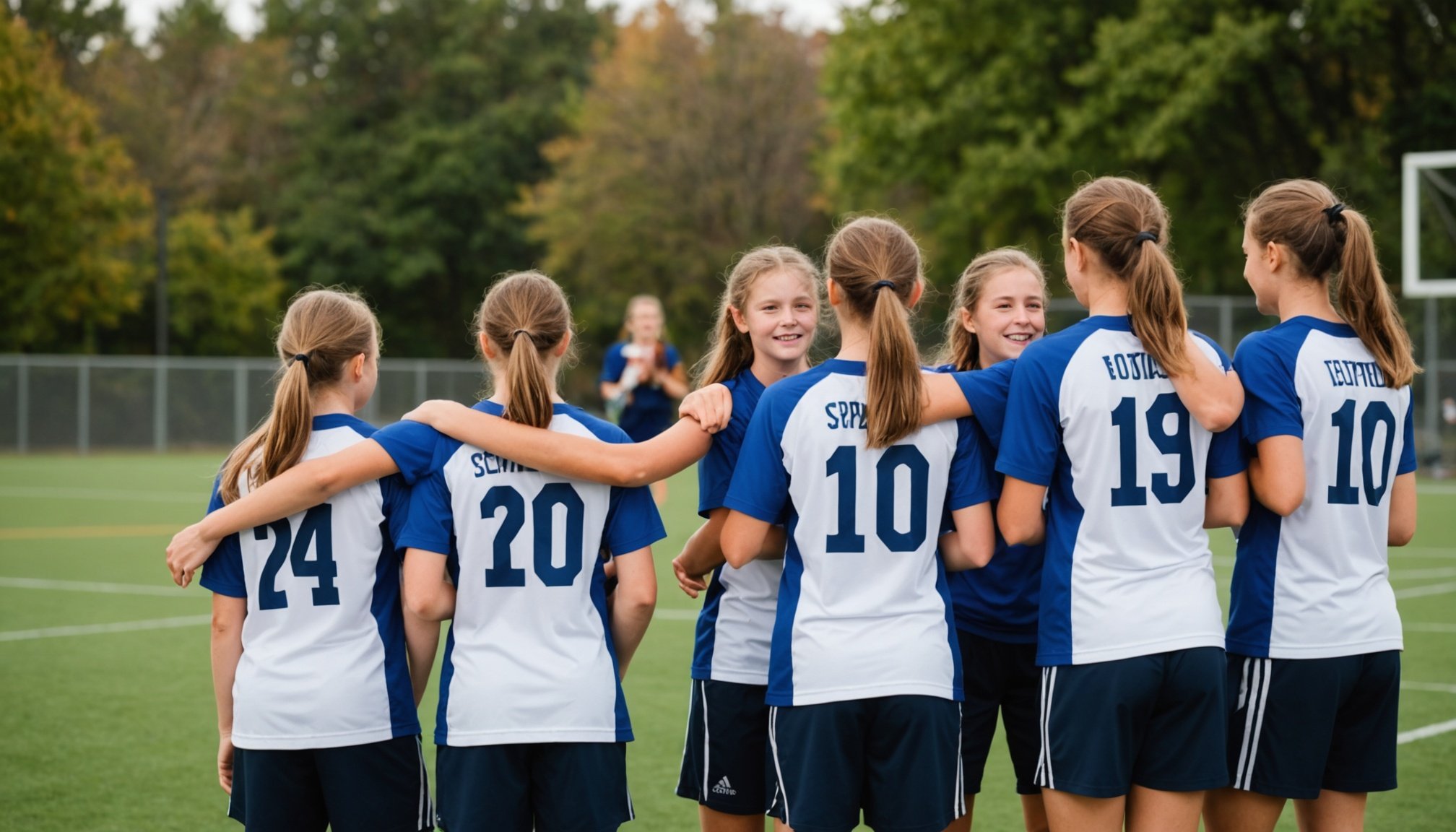Overview of Social Anxiety in Teens
Social anxiety in teens is a prevalent condition that impacts a significant number of young individuals. Social anxiety is characterized by an intense fear of social situations where one might be judged or scrutinized. This fear often leads to avoidance behaviors, impacting a teen’s daily life.
Common symptoms of social anxiety include excessive self-consciousness, fear of embarrassment, and avoidance of social interactions. Teens experiencing these symptoms may exhibit reluctance to participate in group activities or initiate conversations. The psychological impact of such behaviors can be profound, often resulting in decreased self-esteem and academic challenges.
In the same genre : Elevate your dive: essential mental strategies for competitive diving success
If left untreated, social anxiety can hinder a teen’s development. It can affect educational attainment, limit career opportunities, and strain interpersonal relationships. The long-term effects may include increased risk of depression, substance abuse, and further psychological issues. Early intervention and supportive environments are crucial to mitigating these risks.
Understanding the prevalence and manifestation of social anxiety in teens is essential for developing effective strategies to support them. Awareness among educators, parents, and caregivers can facilitate timely identification and intervention, promoting better mental health outcomes. Recognising and addressing these symptoms early can improve quality of life and provide a pathway to healthy adolescent development.
Have you seen this : Uncover groundbreaking footwear technologies for reducing impact in long-distance trail running
The Role of Team Sports in Reducing Social Anxiety
Participating in team sports can significantly aid in reducing social anxiety in teens by offering structured social interaction opportunities. These settings provide a safe environment for teens to interact, fostering the development of crucial social skills. Engaging in team dynamics allows adolescents to collaborate towards a common goal, building camaraderie and mutual support. This process often leads to reduced feelings of isolation, as teens regularly engage with peers in a shared pursuit.
The psychological benefits of being part of a team go beyond social skills enhancement. The emotional benefits include increased self-confidence and a sense of belonging. Such positive experiences can counteract anxiety, promoting emotional resilience over time. Research indicates that sports can serve as a therapeutic medium in managing anxiety, highlighting the importance of structured interaction in this context.
Evidence supporting the use of sports as an effective therapy for anxiety is robust. Studies suggest that the camaraderie and routine of team sports reduce anxiety levels more quickly compared to unstructured physical activities. By consistently participating in team sports, teens can experience greater emotional stability and improvements in managing social anxiety. With the right support, this therapeutic approach can be a valuable tool in their development.
Psychological Mechanisms Behind Team Sports and Social Anxiety
Beneath the surface of teamwork in sports, several psychological mechanisms actively combat social anxiety. These mechanisms play a pivotal role in shaping how teens develop crucial social skills and manage their anxiety in structured settings.
Improving Self-Esteem through Sport
Participation in sports enhances self-esteem by providing regular feedback and recognition. When teens successfully contribute to a team, it fosters a sense of achievement and boosts confidence. This self-worth tackles the negative self-perception often associated with social anxiety.
Promoting Peer Relationships
Team sports facilitate the development of peer relationships, crucial for those struggling with social anxiety. By working towards a common objective, teens develop trust and support, leading to lasting friendships. Active engagement reduces feelings of isolation, offering a buffer against anxiety.
Enhancing Coping Mechanisms
Sports provide an avenue to improve coping strategies. Handling wins and losses, navigating team challenges, and adapting to various roles inculcate resilience and stress management skills. Such experiences offer practical lessons in managing anxiety outside the sporting arena.
Research consistently supports the view that these mechanisms significantly enhance mental health. By engaging in team sports, teens can experience marked improvements in mental well-being, establishing a foundation for effective anxiety management.
Personal Stories and Testimonials
Personal stories epitomize the profound impact of team sports on overcoming social anxiety in teens. Take, for instance, Sarah, a high school student once paralyzed by fear in social situations. Through involvement in volleyball, she found herself part of a supportive community, significantly reducing her anxiety levels. Her story underscores how team environments can transform lives.
Parents often share remarkable testimonials. One parent noted that their son, previously withdrawn, blossomed with newfound confidence after joining the school basketball team. This participation not only helped him with anxiety reduction but also enabled him to build valuable lifelong friendships. Coaches, observing these transformations firsthand, highlight the vital role of sports in nurturing social and emotional growth.
Moreover, case studies illustrate the diverse impacts across different sports. Soccer, with its dynamic and fast-paced nature, offers teens the chance to practice decision-making in real-time, enhancing adaptability and resilience. In contrast, sports like rowing emphasize teamwork and synchronization, teaching participants the value of cooperation.
These real-world experiences and testimonials affirm the potential of team sports as a catalyst for positive change, providing both social support and personal growth opportunities for teens navigating social anxiety.
Practical Strategies for Parents and Coaches
Infusing practical strategies into the sports experiences of teens is pivotal in addressing social anxiety. Parents and coaches can play a transformative role in guiding young athletes towards emotional benefits.
Encouraging Participation
Introduce team sports in an engaging manner, emphasizing fun and camaraderie. Highlighting the non-competitive aspects can ease anxious teens into participation. Celebrate small victories, as positive reinforcement is key in bolstering confidence.
Creating a Supportive Environment
Promote an inclusive team culture by prioritising respect, empathy, and understanding. Foster peer connections by organising team-building activities that focus on collaboration rather than competition. This nurturing atmosphere enables teens to feel safe as they navigate new social landscapes.
Monitoring Progress
Diligently monitor the emotional development of the athletes. Keep track of anxiety reduction and personal growth through regular check-ins. Utilise tools like journals or feedback sessions to assess changes in behaviour and emotional resilience. These reflections allow for timely adjustments and continued support.
Supporting teens in sports requires an adaptive approach. By implementing these strategies, parents and coaches can provide the essential framework for teens to flourish, minimising anxiety and nurturing skills that extend beyond the sports field.
Conclusion: The Transformative Power of Team Sports
Team sports wield transformative impact, empowering teens beyond physical benefits. They serve as a fertile ground for essential life skills, providing long-term benefits that resonate throughout adolescents’ lives. When teens participate in such activities, they cultivate resilience, hone decision-making skills, and enhance social communication, fostering a well-rounded development.
The experience of empowerment gained through sports goes beyond individual gain, extending to community building. Teens learn the value of cooperation, understanding diverse perspectives while working towards shared goals. This foundation nurtures a more inclusive, empathetic society.
By highlighting these benefits, the significance of long-term engagement in team sports becomes apparent. Continued participation offers a consistent framework for personal and social growth, establishing a routine that aids in anxiety management and promotes mental well-being. Sports offer a bulwark against the adversities faced during adolescence.
A supportive culture that embraces team sports is crucial. By providing resources, encouragement, and accessible opportunities, we can create a landscape where teens can thrive. Parents, educators, and communities should work collaboratively to remove barriers and promote sports inclusivity. This collective effort will foster a generation confident in navigating the challenges ahead.

